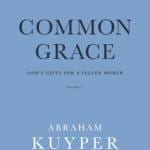It’s been a while since a parenting book has been reviewed here on Schaeffer’s Ghost, ironically largely because the children can be tiny spare-time vampires. Which makes it that much more frustrating that Scott Keith’s Being Dad: Father as a Picture of God’s Grace wasn’t a better book.
Which isn’t exactly to say it’s a bad book. Keith is certainly solid on the Gospel–this book is well-saturated with the good news that if we repent and believe in Christ, there’s a great transference whereby our sins are counted as Christ’s and fully forgiven, and all of His righteousness is given to us in the place of our own sinful works. Being God is also well-written and a smooth, quick, read. So when I say that it isn’t all that great, I’m not saying you shouldn’t read it.
But I still think there’s a big issue here, and I think this issue is with Keith’s central assumption, namely that Fatherhood is a picture of God’s gracious Gospel, and not a picture of the Law. But before getting to that, Keither says that fatherhood is:
- “a model of grace in the home” (46)
- “not a mom! In other words, if you are a father, you are not a mother with bigger muscles and a deeper voice.” (48)
- “Being a dad is not summed up by requiring compliance or obedience; it is, at its most basic level, pointing your children to the God who has made it all OK and saves lost sinners on account of Christ…. As a dad you are that model of forgiveness and the analogy of God. Compliance and obedience are of the Law. The Law always condemns. Therefore, compliance equals condemnation. How can a father be about grace and forgiveness if he is rather about compliance, which equals condemnation? He can’t.” (50)
- “masculine” (51)
- in need of forgiveness (52)
The first two and the last two are fine enough (and don’t get much attention anyway). It’s number 3 where I think the whole thing falls apart–which is unfortunate, because number 3 really bears the weight of the book. Over and over we’re given (through the filter of the parable of the prodigal son) this picture of the father of the family as the source of grace and forgiveness. We’re often even given this as a picture at the expense of the poor mother. Where the mother, in this book, often appears to be the voice of the law and of safety, the father is the voice of grace, forgiveness, and freedom. Mom is the parent who runs out and shouts at the kids not to jump the bikes off the homemade ramp in the driveway, while dad is the parent who lets the kids exercise their freedom to do so, and then extends grace when needed in the aftermath (which is obviously a bigger deal when sin is involved, as opposed to mere physical damage). We even get a re-telling of the prodigal son parable in the modern world when it is the mother involved, instead of the father. Let’s just say that no one comes out looking great in that particular telling–especially the overbearing mother.

So clearly, there’s a lot going on in this book, and I think a lot of it focuses on Keith’s (and, from what I understand of their theology, Lutheranism-in-general’s) failure to put the Law in its proper place. Specifically, this is an issue with the Third use of the Law and the… other one–I don’t remember off the top of my head (I think it’s the second use of the Law?), but it’s the one that explains how the Law acts as a restraint on our fallen natures. Keith is correct that fathers act as a picture of God in the family, but I’m not convinced that we can so neatly slice God’s gracious character apart from His holiness as reflected in the Law. Yes, we should reflect God’s forgiveness to our children, but each parent should also reflect God’s holiness in restraining their children’s sinful actions (the… other use of the Law) and teaching them the be people of character according to God’s will (the 3rd use of the Law). And I’m writing this as a Baptist, who very much does not think my children are believers (until, Lord willing, they actually repent and believe and confess faith). Yet even I think that at least part of parenting, especially being a father, is more than just forgiveness. It involves being the picture of God much more fully.
And this goes for both parents. Both the mom and the dad should fully picture God’s nature to their children. We should both be voices of both Law and Gospel, as circumstances and occasion merit.
I suspect that on some level, the temptation to draw the distinction between father and mother given in Being Dad is much more because of the usual division of labor in traditional households than because of any explicit normative view in Scripture. The father can come home and appear to be a picture of grace because he’s been gone all day at work. Were he the one most often home, he would undoubtedly be the voice of the law and the rule-setter for the children. Maybe that’s being uncharitable, but I can’t help but suspect that this is the case.
Again, I’m not saying there’s nothing good or useful in Being Dad. As parenting books go, it’s a fine enough one to read and have on your shelf. Just take it for what it is: a book which needs a bit better appreciation of God’s character as reflected in the Law, as well as the role of the Law in human life.
Dr. Coyle Neal is co-host of the City of Man Podcast and an Associate Professor of Political Science at Southwest Baptist University in Bolivar, MO












